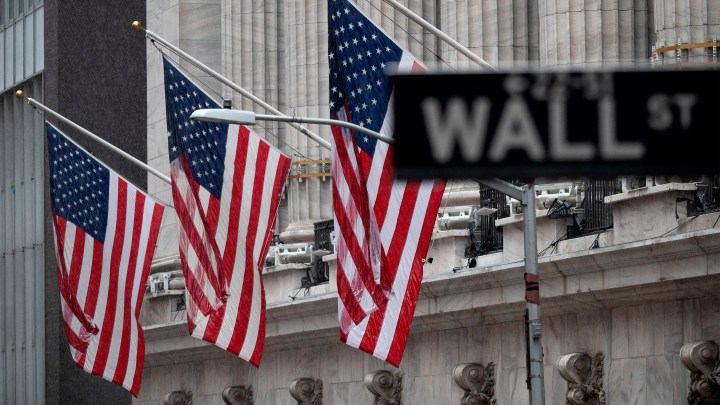
When the yield curve inverts, how nervous should we be?

The yield on a three-month treasury bill is currently higher than the yield on a 10-year treasury – this is known as an inverted yield curve.
Typically, yields increase with the duration of the bond because investors want a higher return if they’re locking their money away for a longer period of time.
As they’ve historically predated recessions, inverted yield curves get a great deal of attention. While an inversion does not guarantee a recession, the larger it is and the longer it lasts, the greater the likelihood of a recession.
Click the audio player above to hear the full story.
There’s a lot happening in the world. Through it all, Marketplace is here for you.
You rely on Marketplace to break down the world’s events and tell you how it affects you in a fact-based, approachable way. We rely on your financial support to keep making that possible.
Your donation today powers the independent journalism that you rely on. For just $5/month, you can help sustain Marketplace so we can keep reporting on the things that matter to you.












